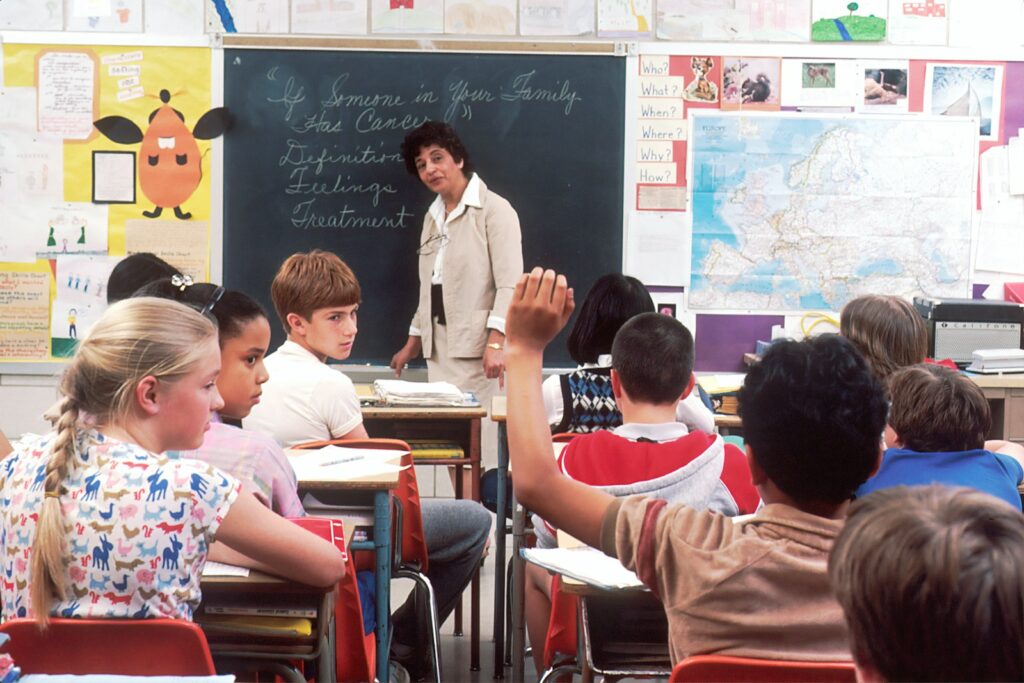It goes without saying that substitute teachers play a critical role in maintaining continuity and quality in classrooms. As schools increasingly rely on substitutes to fill gaps due to teacher shortages or absences, understanding the specific interview questions for substitute teachers has become essential. This guide explores these questions and offers insights into how candidates can effectively prepare.
What are Substitute Teacher Interview Questions?
Substitute teacher interview questions are designed to evaluate a candidate’s flexibility, classroom management skills, and ability to quickly adapt to new educational environments. These questions assess how well a substitute can maintain the educational standards of the school and manage diverse classroom situations effectively.
Most Common Substitute Teacher Interview Questions

What qualities do you think are important for a substitute teacher?
A substitute teacher must be adaptable, reliable, and resourceful. They need to quickly understand and implement lesson plans, manage classroom dynamics effectively, and ensure that the educational process continues seamlessly in the absence of the regular teacher. Being prepared to handle unexpected situations is also crucial. Example: “I believe adaptability in handling different classroom settings and age groups is key for a substitute teacher.”
How do you prepare for a day in the classroom?
Preparation involves reviewing the lesson plans ahead of time, understanding the classroom rules, and familiarizing oneself with the specific needs and accommodations of the students in the class. Effective communication with the regular teacher, if possible, is also important to ensure continuity in teaching. Example: “I always arrive early to review the lesson plans and set up the classroom to create an inviting learning environment.”
Can you describe your classroom management strategy?
Effective classroom management strategies for a substitute teacher include establishing clear expectations at the beginning of the class, using positive reinforcement to encourage good behavior, and being consistent with the classroom rules set by the regular teacher. It’s important to be firm yet fair and approachable. Example: “I use a mix of proactive engagement and clear, consistent rules to maintain order and keep students focused on their tasks.”
What is your approach to teaching a lesson you’re not familiar with?
When faced with an unfamiliar lesson, a substitute teacher should review the material thoroughly beforehand, use available resources to understand the key concepts, and apply general teaching principles to guide the lesson. It’s also beneficial to ask for input from other teachers if uncertainties remain. Example: “I seek clarity by using the teacher’s notes and available textbooks, and sometimes I’ll incorporate multimedia resources to enhance understanding.”
How do you engage students who seem uninterested?
Engaging uninterested students involves identifying their interests and linking the lesson to those areas, using interactive and hands-on activities to make learning more dynamic, and varying teaching methods to cater to different learning styles. Maintaining a high energy level and showing enthusiasm for the subject matter can also help capture their attention. Example: “I like to use interactive activities like group discussions or games related to the lesson to capture students’ interest.”
What steps do you take if a student misbehaves?
Handling misbehavior involves understanding the school’s disciplinary procedures, addressing issues promptly and fairly, and communicating with the student to understand the reasons behind their behavior. Documenting incidents and informing the regular teacher are also important practices. Example: “I address misbehavior by calmly discussing the issue with the student, applying the classroom rules, and documenting the incident for the regular teacher.”
How do you measure your success as a substitute teacher?
Success as a substitute teacher can be measured by the smooth continuation of the lesson plan, positive feedback from students and staff, and the ability to handle classroom challenges effectively. Regular self-reflection and feedback from teachers and administrators also play a crucial role in measuring and improving effectiveness. Example: “I consider a day successful when I’ve managed to cover all planned material effectively and maintained a positive learning environment.”
How to Get Prepared for Substitute Teacher Interview Questions

Review educational theories and teaching strategies
Understanding various educational theories and effective teaching strategies can provide a solid foundation for answering technical questions during the interview.
Gain practical classroom experience
Whether through volunteering, student teaching, or other roles, hands-on experience in a classroom setting is invaluable. It helps build confidence and provides real-world examples to discuss in interviews.
Develop a personal teaching philosophy
Articulate your teaching philosophy, which should reflect your values, teaching methods, and views on education. This philosophy will guide your responses, showing your depth as an educator.
Prepare for situational questions
Expect to answer situational questions that assess your problem-solving and critical thinking skills. Practice describing how you would handle specific classroom scenarios.
Special Focus Section: Adapting to Different Educational Settings
Understanding how to swiftly adapt to various educational settings, including different grade levels and subjects, can significantly enhance your effectiveness as a substitute teacher. Discussing your flexibility and strategies for these adaptations can set you apart in interviews.
Conclusion
Effective preparation for substitute teacher interview questions involves understanding the nuances of the role and being ready to articulate how you can maintain educational continuity under varying circumstances.



